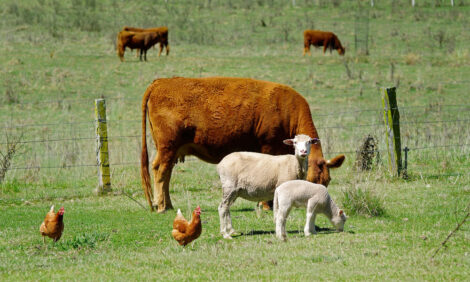



Call for Govt to Focus on Poultry Health
BANGLADESH - Government support is needed to maintain the growth of the poultry industry, particularly in respect of bird health.The poultry industry is otherwise known to hold out multi-faceted prospects for the Bangladesh economy. An opinion piece in Financial Express of Bangladesh states that it has already shown the way to increasing protein availability of the vast population of the country. Traditional poultry – reared naturally and in an unplanned manner – have been the mainstay for many years. But the needs of the growing population dictated planned breeding of poultry birds to cope with the higher demand. Thus, planned breeding of poultry that started from the eighties is now a well-established field of activities in the country.
According to statistics available from operators in the sector, there are now some grand parent stock farms, many parent stock farms and hatcheries, 70,000 to 80,000 poultry farms and furthermore, many pelleted poultry feed factories in the private sector. The sector is also poised to grow rapidly. It has already posted growth of some 20 per cent in the last 15 years. Owners and operators in the industry are confident that it could grow rapidly in the coming years and create employment opportunities for about another 10 million people more.
Employment would be created mainly among the current jobless ones at the grassroots levels. This is certainly very heartening news for an economy that suffers from a heavy burden of unemployment. The poultry industry is not only meeting local needs very substantially, it has found newer opportunities from value addition. Food industries have grown up based on chicken that produce soups, nuggets, sausages and other products in accordance with the changing preferences of the customers. Some of these local poultry-based and value-added products have also found export markets. The export trend looks encouraging.
But the faster and fuller realisation of the potentials of this sector also requires public policy supportive measures, according to Financial Express. The owners in this industry have been drawing attention to the needs of such supports for quite some time. Maize, the main component of chicken feed, needs to be imported. The industry importers called for withdrawal of advance income tax (AIT) on import of maize and also similar withdrawal of tax from pelleted feeds. There are other raw materials and medicines which need importing for the poultry industry and its operators also expect duty concessions on the import of these. The government, therefore, should examine all such requests sincerely and meet them to a reasonable extent. The extension of such incentives are likely to create the environment for further brisk growth of this sector.
There is also another vital area where the government can contribute. This is in the area of monitoring and regulation. Media reports earlier appeared about certain local feed enterprises making the same from hazardous substances from tanneries. Clearly, there are dangers to local consumers of poultry as well as a threat to the reputation of the emerging export-oriented and value-adding enterprises in this sector, if such very objectionable activities and instincts are not immediately nipped in the bud.
For this purpose, the relevant agencies of the government will have to improve and extend their monitoring and regulatory functions. Specially, governmental supervision to create conditions for healthful breeding of the birds in the farms, is crucial. The poultry sector suffered serious reverses several times in recent years from bird flu. Government has to conduct extensive countrywide monitoring and preventive activities to detect cases of bird flu and offset any turn towards its outbreak in epidemic form. Governmental supervision to create conditions for healthful breeding of the birds in the farms, is crucial, concludes the Financial Express report.











